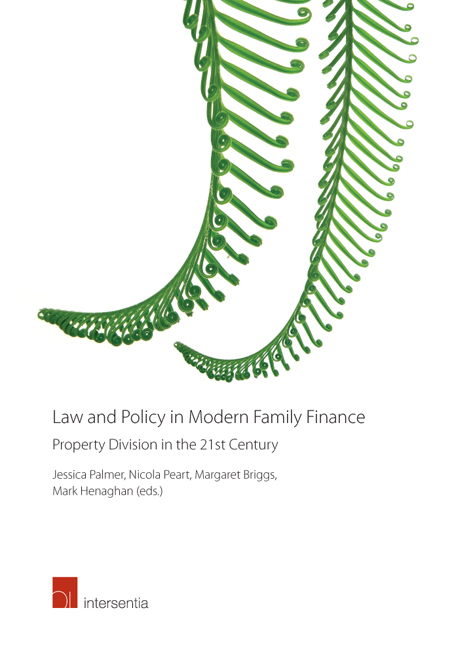Book contents
- Frontmatter
- Foreword
- Acknowledgements
- Contents
- Table of Cases
- List of Contributors
- Chapter 1 Introduction
- PART I WHO SHOULD BE COVERED BY A PROPERTY SHARING REGIME?
- Chapter 2 Reconsidering Family Property Law in the Post-Marital Age
- Chapter 3 Which Relationships Should be Included in a Property Sharing Scheme?
- Chapter 4 Children's Interests in Division of Property on Relationship Breakdown
- Chapter 5 Family Finances on Death of a Spouse or Partner
- Chapter 6 A Lament for ‘Testator's Family Maintenance’ – A Good Idea Gone Wrong? Australian Reflections
- PART II WHAT PROPERTY SHOULD BE COVERED BY A PROPERTY SHARING REGIME?
- PART III HOW SHOULD PROPERTY BE SHARED AT THE END OF A RELATIONSHIP?
- Index
Chapter 4 - Children's Interests in Division of Property on Relationship Breakdown
from PART I - WHO SHOULD BE COVERED BY A PROPERTY SHARING REGIME?
Published online by Cambridge University Press: 29 September 2018
- Frontmatter
- Foreword
- Acknowledgements
- Contents
- Table of Cases
- List of Contributors
- Chapter 1 Introduction
- PART I WHO SHOULD BE COVERED BY A PROPERTY SHARING REGIME?
- Chapter 2 Reconsidering Family Property Law in the Post-Marital Age
- Chapter 3 Which Relationships Should be Included in a Property Sharing Scheme?
- Chapter 4 Children's Interests in Division of Property on Relationship Breakdown
- Chapter 5 Family Finances on Death of a Spouse or Partner
- Chapter 6 A Lament for ‘Testator's Family Maintenance’ – A Good Idea Gone Wrong? Australian Reflections
- PART II WHAT PROPERTY SHOULD BE COVERED BY A PROPERTY SHARING REGIME?
- PART III HOW SHOULD PROPERTY BE SHARED AT THE END OF A RELATIONSHIP?
- Index
Summary
INTRODUCTION
The breakdown of a marriage, civil union, or de facto relationship inevitably affects children of the relationship, particularly minor and dependent children. It disrupts their home and family life. How their parents divide their relationship property is likely to have a direct impact on their lives. They may have to move house, leave their neighbourhood and friends, change schools, and they may experience a financial setback. The question this chapter addresses is whether the interests of children should be taken into account in the division of property between their parents and, if so, how those interests should be accommodated. This chapter is concerned only with relationships ending during the joint lives of the parties. The property consequences of relationships ending on death of a spouse or partner are dealt with elsewhere.
In England and Wales, the welfare of any minor children of the marriage is the first consideration when courts exercise their discretion under the Matrimonial Causes Act 1973 (Eng & W) to adjust property between former spouses on divorce. Australia's Family Law Act 1975 (Cth) also has a discretionary regime in which the interests of children are a mandatory consideration. When exercising their discretion under these Acts, the courts in both jurisdictions consider the needs of the family as a whole, with the aim of achieving a fair or just outcome for the parties. Furthermore, these Acts deal not only with property division, but also with spousal maintenance and child support, as well as care of the children after divorce. Covering all these issues in one statute facilitates a holistic approach to the consequences of marital breakdown.
New Zealand differs from England and Wales, and Australia by having separate statutes for property division, spousal maintenance, child support, and care of the children. The Property (Relationships) Act 1976 (NZ) deals only with property division. The regime that this Act establishes is similar to a system known in the civil law jurisdictions as a deferred community of acquests.
- Type
- Chapter
- Information
- Law and Policy in Modern Family FinanceProperty Division in the 21st Century, pp. 65 - 94Publisher: IntersentiaPrint publication year: 2017



